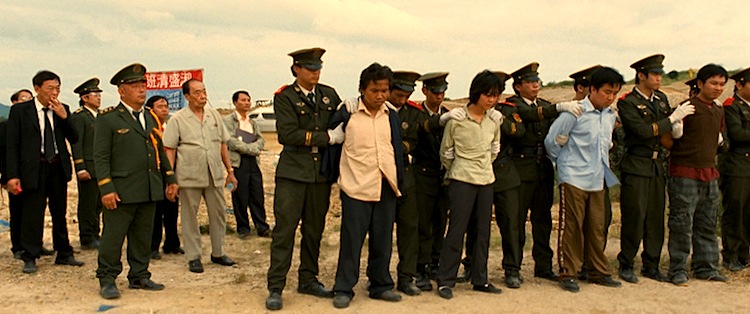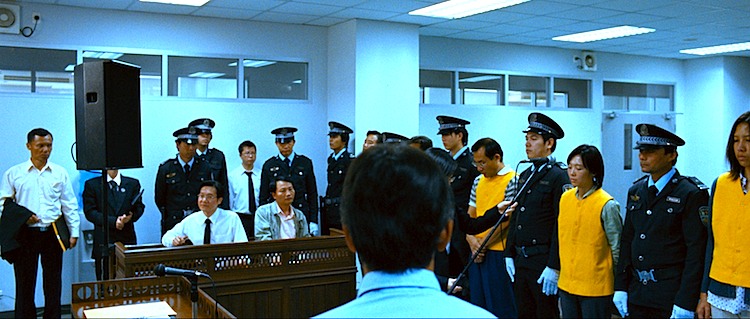
By Joe Bendel. Chinese dissidents are extraordinarily brave and thoughtful, but a Chinese Communist Party aphorism refers to them as chickens. Presumably said chickens are harder to kill than monkeys, which is why the reported saying advocates slaughtering the one to intimidate the other. Whether they are “guilty” or not, hardly matters. In this context, it is not great to be the latter, but even worse to be the former. Swedish filmmaker Jens Assur dramatizes a shocking everyday application of the pacifying policy in his short film Killing the Chickens to Scare the Monkeys, which somewhat recently screened at the 2012 Sundance Film Festival (and will be covered slightly after the fact now, thanks to the good graces of the Swedish Film Institute).
Though writer-director-producer Assur divides his time between Stockholm and Los Angeles, he filmed Chickens in Thailand, employing a style in keeping with the so-called Digital Genenration, or dGenerate, school of independent and largely underground filmmaking. It opens with an unbroken fifteen minute tracking shot more thoughtfully composed and rendered than Silent House in its entirety.
Given the title, it is not much of a spoiler to reveal that the first act recreates an execution. Yet, the circumstances surrounding it stand as a disturbing commentary on Chinese society. However, Chickens is just getting started, even though the story has ended. In subsequent scenes, Assur rewinds the narrative, showing viewers just how one school teacher came to be at the wrong place at the wrong time, as well as just what sort of person she was. While the tone is clinically detached, the sense of tragedy still compounds exponentially with each temporal shift.

Technically, Chickens is quite a polished work, conveying the sensation of observing China’s dirty “justice” system, Frederick Wiseman-style. Cinematographer Marek Septimus Wieser dramatically frames each sequence, most particularly the continuous opening shot. Although uncredited (for reasons one might easily speculate), the work of the lead protagonist is frighteningly convincing and ultimately quite poignant, in a realistically grounded way.
Forthrightly addressing some serious issues within its twenty-four minute running time, Chickens is definitely a fully realized and engaging work. Indeed, it should be thought of as a film in the fullest sense rather than a spec short or a sketch. Challenging and chilling, Chickens deserves a wide international audience following its screenings as part of this year’s Sundance Film Festival in Park City.
Posted on March 13th, 2012 at 1:26pm.